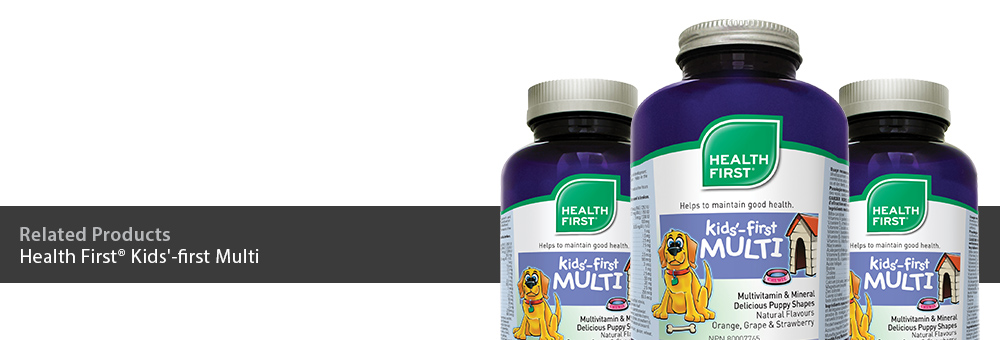

The right nutrients for your kids
Childhood is a time of constant growth and development. Bones, teeth, skin, muscles, eyes and brains – the organs and body parts that will serve us throughout life – are being perfected. Nutrition plays a big part in proper development and vitamins, minerals and omega-3’s act as the essential building blocks.
Clearly, the best way for children to get the nutrients they need is through a healthy diet. Fruits and vegetables, legumes, lean meats, fish and dairy products are among the foods that are most densely packed with nutrition for growing children. The vitamins and minerals found in these foods are in a form that our bodies recognize and easily absorb.
The challenge comes in getting children to eat healthy foods every day. Most parents know how picky children can be when it comes to diet. Even the children with the best of eating habits don’t eat right all the time. Processed foods that are high in unhealthy fats and sugars dominate our culture and are designed to appeal to children’s taste buds, not necessarily to supply the nutrients required for optimal growth. Further, many of the foods traditionally high in nutrients, such as rice, have been stripped of many of their most valuable nutritive content through modern processing methods.
There are a number of supplements that can deliver needed nutrients to your child:
Multivitamin and mineral – A good chewable multivitamin and mineral, with such important nutrients as vitamin C, the B vitamins, calcium, magnesium and vitamin D supports health and acts as daily nutritional insurance. Vitamins and minerals are involved in promoting immune health, maintaining eyesight, forming bones, teeth, tissue and gums and the metabolism of carbohydrates, fats and proteins. Look for a children’s multivitamin and mineral supplement with no artificial colourings, flavourings or preservatives.
Vitamin D – During winter months, additional vitamin D than is found in a typical children’s multi-vitamin may be required. While all Canadians are at risk for low vitamin D levels, children represent a demographic at particular risk for low vitamin D incidence. A 2009 study in the journal Pediatrics expressed concerning results for vitamin D levels in American children. It found that 7 out of 10 children had insufficient vitamin D levels and almost 10% of children were deficient. The lead researcher of the study stated, “We expected the prevalence of vitamin D deficiency would be high, but the magnitude of the problem nationwide was shocking.”1 Keep in mind that Canadian children live further north and thus are exposed to even fewer hours of sunlight in the winter. During winter months, many health experts recommend 1000 IU a day of vitamin D for all Canadians.
Newer studies are looking at the benefits of vitamin D for enhancing children’s immune health.2
Omega 3’s – The need for key essential fatty acids, such as the omega-3 DHA from fish oil, for a child’s brain development does not end during fetal development. While 70% of brain development does occur during the fetal stage, the other 30% of the child’s development continues through to age six.3 A lack of DHA in children is believed to lead to behavioral and mood disorders. Supplementing with a fish oil supplement with high DHA formulated specifically for children can assist.
Intake of EFAs and DHA during preschool years may also have a beneficial role in the prevention of attention deficit hyperactivity disorder (ADHD) and enhancing learning capability and academic performance.4
As a concerned parent, you’ll want to seek out a purified fish oil supplement that has been cleaned and tested to be safe from contaminants such as heavy metals, which are found in our oceans. The International Fish Oil Standards (IFOS) is an independent organization which posts quality and safety testing results for fish oil supplements on their website for consumers to review: www.ifosprogram.com.
